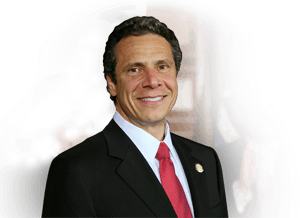
Following a state Wage Board’s endorsement of a phased-in $15 minimum wage for fast-food workers, progressives are vowing to push for a higher minimum for all types of workers when the state Legislature reconvenes next year. Opponents, meanwhile, are questioning whether the increase is even legal and blasting the process behind it.
The unelected, three-member Wage Board was created earlier this year by Gov. Andrew Cuomo, whose administration now must formally approve the board’s recommendation. The Democratic governor supports the increase, which is expected to affect an estimated 200,000 workers.
The hike would only apply to fast-food workers in restaurants with 30 locations or more and would be phased in gradually — over three years in New York City and over six elsewhere in the state. Several hundred thousand low-wage workers won’t be covered by the increase at all — an exclusion which ensures that many of them will press lawmakers for a broader increase.
Sen. Andrea Stewart-Cousins of Yonkers, who leads the Senate’s Democratic minority, said Wage Board’s recommendation is “a good first step.”
“We need to ensure the wages are increased for all New Yorkers,” she said. “The time is past due.”
Cuomo’s willingness to go it alone presents Republican lawmakers with a dilemma. If they continue to oppose across-the-board minimum wage bills that they say are unfair to business, then they risk the possibility that Cuomo will create more wage boards.
“This misguided style of governance, or lack thereof, marks a step backward for New York state,” said Assemblyman Brian Kolb, leader of the chamber’s GOP minority. Kolb said the threat of more wage boards focused on other industries is “leaving already over-burdened business owners across the state wondering if they could be next.”
The minimum wage is now $8.75 an hour but is set to go to $9 at year’s end under a law passed in 2013. Since then, efforts to raise it even higher have run into opposition from Republicans who say the state should allow the $9 wage to take effect before considering another increase.
Earlier this year, New York City Mayor Bill de Blasio pushed for a $13 minimum and wants authority to set the wage higher in his city. Cuomo has proposed raising the wage to $10.50 an hour statewide and $11.50 in New York City.
Some progressives have grumbled that Cuomo hasn’t done enough to advance minimum wage bills, but the Democratic governor said the Wage Board’s proposal “is just the beginning.”
“We will not stop until we reach true economic justice and we raise the minimum wage for every worker in every job in this state,” he said. “Because the New York way is we believe the greatest success is shared success, and the greatest feast has the most number of people at the table.”
Lawyers for franchise owners say they are considering whether to challenge the increase in court on the grounds that that fast-food industry was targeted without legal justification. Restaurant owners say that if the increase is allowed to stand, it will force them to raise menu prices and cut labor costs by either reducing workers’ hours or by replacing employees with automation.
At least one industry that wasn’t affected by the wage hike has concerns too. Brian Sampson, president of the Associated Builders and Contractors, predicted that other industries would have to raise their wages to prevent workers from fleeing for better-paying fast-food jobs.
“Industries who compete for these workers will be impacted tremendously, causing a ripple effect and ultimately leading to an increase in wages and prices across the board,” Sampson said.















